Kanika Datta in New Delhi
Most guests for this column tend to be faintly perplexed with a format that allows them to choose a restaurant, hold a freewheeling conversation and then have Business Standard pick up the tab. Parthasarathi Shome was not among them.
Having carefully read some Lunch with BS articles, he pronounced them 'rather fun' and entered into the spirit of things.
He'd settled for dinner, initially selected the Italian restaurant at The Oberoi, then changed his mind to Wasabi, the reputed Japanese restaurant at the Taj Mahal.
Shome is better known to the public as the man who introduced controversial taxes under P Chidambaram's finance ministership -- the Banking Cash Transaction and Fringe Benefit taxes -- apart from setting the course for the reform of the indirect tax regime with the Goods and Services Tax.
. . .
Return of the taxman
Both FBT and BCTT have been scrapped in his absence and he is emphatically not happy -- he explains why at technical length over our meal.
In 2008, Shome left his advisor's role two years before his second contract ended -- and amid much speculation -- for an assignment as chief economist of Her Majesty's Revenue and Customs in the UK.
Now, with that three-year contract over, he's due back to head the influential think tank Indian Council for Research on International Economic Relations (Icrier) from January.
He's making peripatetic visits to Icrier from the UK, familiarising himself with his forthcoming responsibilities.
The frequent travel doesn't faze him, nor does the prospect of relocating across continents.
"Since 1995, I have moved, inter-continentally, lock, stock and barrel, seven or eight times," he tells me cheerfully.
Indeed, through the course of his career, he's travelled to 99 countries and he plans to make Bhutan his 100th.
. . .
Return of the taxman
For appetisers, Shome enquires about a 'certain bean', which our server translates as edamame, and we add an assorted sushi platter.
For the main course, Shome opts for Chilean sea bass -- his favourite -- and I choose teppanyaki tenderloin done medium rare and we agree to share a bowl of sticky rice.
We were recommended the Cloudy Bay Sauvignon, a New Zealand white that turns out to more than match its reputation.
Edemame is a cross between a subtly-flavoured bean and a pea-pod that requires splitting by hand before it's popped into the mouth.
If it hadn't been for the sophisticated setting we could just as well be having an adda, since we were discussing music and his early education in Kolkata (Hindi High School) and Chennai (Don Bosco).
. . .
Return of the taxman
Later at Delhi School of Economics, he was taught international finance by current Prime Minister Manmohan Singh.
Was he a good teacher -- and I encourage him not to say yes only for the record.
Shome thinks he was one of the 'three best teachers' -- K L Krishna (econometrics) and A L Nagar (statistics) being the other two.
What about Amartya Sen? "Everyone said he was brilliant but I couldn't understand his accent at that time," is his assessment.
As his wine glass is refilled, Shome talks about his PhD in the US and how he gave up a full professorship at the American University in Washington, which he had had from the age of 32, for the International Monetary Fund.
His decision in favour of the latter was the result of a 'streak of adventurism'.
"I felt like a novice in the IMF whereas at the university I was a Young Turk. But I realise that I plunge into adventure -- if there's an opportunity to do something new I don't say no to it."
. . .
Return of the taxman
On his decision to go to the UK, I say there were two explanations for his sudden departure.
One, he fell out with Chidambaram and, two, he was fed up with the bureaucrats. Which was correct?
"Neither. I didn't fall out with Chidambaram at all." That's unusual, I point out. He laughs.
"Many people congratulated me on working with him for so long but our relationship was very professional."
In fact, he says Chidambaram -- whom he considers 'super efficient' and 'dynamic' -- had extended his contract by four years to October 2010.
"I had every intention of staying but the job that the permanent secretary tax of the UK offered represented a challenge, however small, and I felt working in an embedded manner with a developed country tax administration would be a great experience".
. . .
Return of the taxman
Image: P Chidambaram.He and Chidambaram had a 'hearty chat' about it and he decided to accept.
So, no problems with the bureaucracy?
He scrutinises the sushi platter to avoid the squid to which he is allergic before answering elliptically.
"I have come across IAS officers who are brilliant but, frankly, I think in today's day and age you need professionally-specialised people and there's not enough of them in government."
He talks about the American and Latin American models that include specialists from the professions.
In government he found that 'as long as my boss understood the situation and saw to it that I could function there was never any issue but I think that' -- long pause "because of our overall bureaucratic set-up politicians tend to believe that only sharpened Indian bureaucrats can face and solve complex situations, forgetting that external, experienced people can solve the same problems, probably more professionally.
"I don't think we can move towards a professional framework in society until and unless we do that."
. . .
Return of the taxman
The sushi platter, sadly, is not comparable to Konomi at The Trident or Sakura at Hotel Metropolitan.
I wonder at his substituting the urban delights of London for the maddening drawbacks of Delhi.
"It is strange isn't it," he replies, "but I am never unhappy here though I do tend to get unhappy abroad."
His explanation is that in 'aged, progressed societies' things are much more set whereas he feels happy in India 'because you are continuously seeing change and the youth show that there's promise'.
Although he's spent the bulk of his adult life overseas, he says he's 'never quite identified with the West culturally other than literature, travel, and opera perhaps'.
. . .
Return of the taxman
The explanation is complex and interesting. Unlike most Indians abroad he's 'quite westernised' in that he doesn't confine his social circle to 'other high-quality Indians' -- the 'Nehru Centre crowd' he calls them. His friends are Argentinean, Chilean, Colombian, German, English...
Having travelled to all Latin American countries barring Honduras and El Salvador in his IMF days, he speaks fluent Spanish.
But although he finds Latin America an 'exquisite combination of West and East', he turned down citizenship offers because 'ultimately, I can't give up India'.
One reason is its perennial 'mystery and attractiveness'.
The other was advice from his father two days before he died that India would need Shome's generation.
"That is like a blessing and a challenge but it's had an impact on me," he adds.
. . .
Return of the taxman
Image: Indian Parliament.The main course arrives and we dig in appreciatively. Tax isn't the only thing that keeps him busy.
There's one tome on 'modernising tax administration' in the works -- but also a novel, 'on the education of a personality,' partly inspired by Hardy, Dickens and Lawrence, but he hasn't a publisher yet.
On books, he's effusive in his praise of Barack Obama's Dreams From My Father but seems less enamoured of the American dream.
Reflecting a deep personal decision, Shome chose to give up his Green Card after almost 30 years.
"When I went to the US embassy here to do this the young officer asked if I needed counselling.
"I told him I might need a lot of counselling on other things but on this one I suppose I have made up my mind!"
. . .
Return of the taxman
All evening, I've been glancing at his intriguing ring which has a stone that looks like pitted turquoise.
It's called larimar, a kind of coral near the sea, found only in Dominican Republic.
He's had it since 1983.
The tie, too, is interesting but very British in origin. It's from Ashford & Brooks "from where I'm told the Queen's husband and her son shop" and is covered with tiny, exquisitely embroidered weighing scales.
Shome is a Libran, which is why he chose it.
We decline dessert for jasmine tea and Shome asks if we're done with the 'formal' part of the dinner.
So I switch off the tape recorder and the conversation gets even more interesting

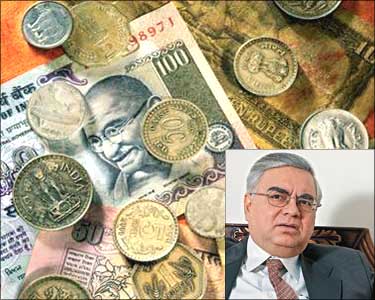


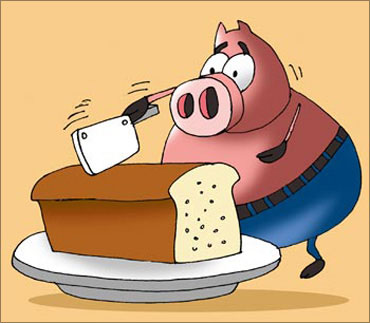
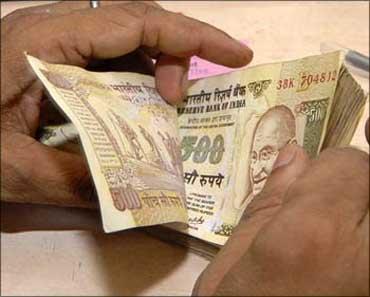
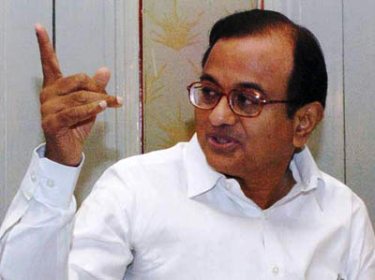
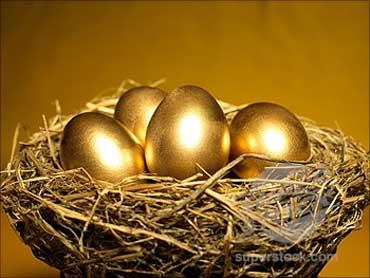
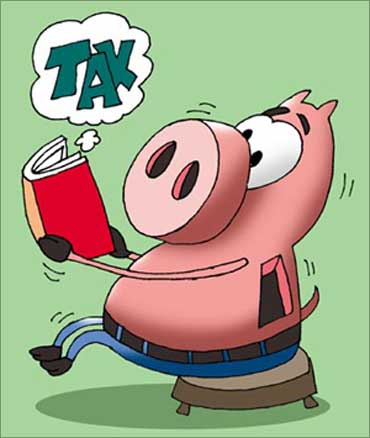
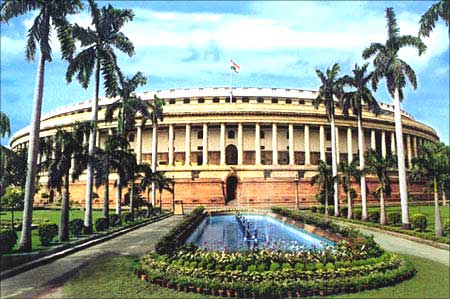
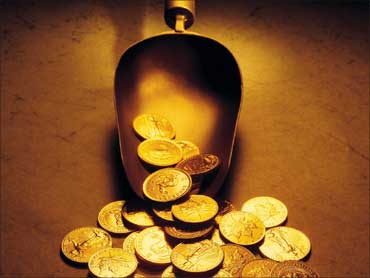

article